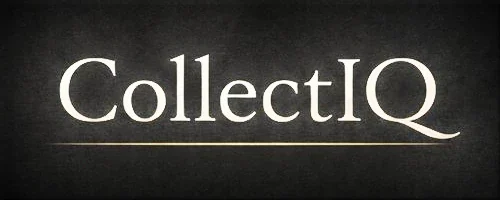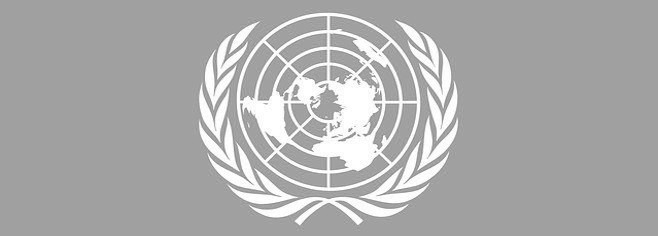Vereinte Nationen und Google arbeiten an einem feministischen Internet
Neues vom Frauen unterdrückenden Patriarchat meldet die Washington Post. Die Zeitung spricht von einer „radikalen, gefährlichen Zukunft“:
On Thursday, the organization’s Broadband Commission for Digital Development released a damning „world-wide wake-up call“ on what it calls „cyber VAWG,“ or violence against women and girls. The report concludes that online harassment is „a problem of pandemic proportion“ — which, nbd, we’ve all heard before.
But the United Nations then goes on to propose radical, proactive policy changes for both governments and social networks, effectively projecting a whole new vision for how the Internet could work.
Under U.S. law — the law that, not coincidentally, governs most of the world’s largest online platforms — intermediaries such as Twitter and Facebook generally can’t be held responsible for what people do on them. But the United Nations proposes both that social networks proactively police every profile and post, and that government agencies only „license“ those who agree to do so.
„The respect for and security of girls and women must at all times be front and center,“ the report reads, not only for those „producing and providing the content,“ but also everyone with any role in shaping the „technical backbone and enabling environment of our digital society.“
How that would actually work, we don’t know; the report is light on concrete, actionable policy. But it repeatedly suggests both that social networks need to opt-in to stronger anti-harassment regimes and that governments need to enforce them proactively.
At one point toward the end of the paper, the U.N. panel concludes that „political and governmental bodies need to use their licensing prerogative“ to better protect human and women’s rights, only granting licenses to „those Telecoms and search engines“ that „supervise content and its dissemination.“
Das Magazin Time führt aus, dass den Vereinten Nationen zufolge Cybergewalt gegen Frauen gleichbedeutend mit realer Gewalt sei:
Presented by U.N. Women and the U.N. Broadband Commission, the report estimates that 73% of women have endured cyber violence, and that women are 27 times more likely as men to be harassed online. In Europe, nine million girls have already experienced some kind of cyber violence by the time they’re 15. Anita Sarkeesian, a gamer and activist who has long agitated for more action against cyber violence, spoke at the launch of the new report, titled „Cyber Violence Against Women and Girls: A Worldwide Wake-Up Call.“
(…) The report also argues that „cyber touch is recognized as equally as harmful as physical touch,“ suggesting that online harassment might be just as lethal as domestic violence or sexual abuse.
(…) If the internet isn’t a safe place for them, Mlambo-Ngcuka added, they risk swearing off it altogether. „If the woman is tormented, she may then decide that ‘I don’t want to have anything to do with technology,“ she said. „To be disconnected from technology in the 21st century, it’s like having your freedom disrupted: your right to work, your right to meet people, your right to learn, your freedom of speech. So if women become so intimidated and traumatized from the experiences they may have, it’s a whole world that will be lost to them for the rest of their life.“
Wenn Cybergewalt gleichbedeutend mit realer Gewalt ist, bedeutet das, wir Männerrechtler werden von der Hetze auf Twitter, in der Wikipedia und zahllosen Online-Artikeln täglich zusammengeprügelt? Fresse halten, ihr seid Männer, ihr interessiert nicht! schallt es einem entgegen. Wäre es anders, würde man einer Statistik, auf die etwa die liberale Feministin Christina Hoff Sommers hinweist, mehr Aufmerksamkeit widmen: Ihr zufolge sind die meisten Opfer von Online-Attacken nach wie vor Männer.
Wenig begeistert ist der liberale Blogger Milo Yannopoulos über den Vorstoß der UN. Die Vereinten Nationen möchten das gesamte Internet zensieren, um die Gefühle von Feministinnen zu schützen ist sein Artikel zu diesem Thema betitelt. Darin heißt es:
So, what sort of content does the UN want to censor? ISIS recruitment videos, perhaps, which lure women into lives of rape and servitude? Live-streamed executions from Syria? Revenge porn or snuff videos? There’s no shortage of dangerous and potentially traumatising content on the web, after all, much of it disproportionately affecting women.
Alas not. The UN is hung up on „cyber violence against women,“ a Kafkaesque term that is apparently shorthand for „women being criticised on the internet.“ At least, that’s how at least two attendees at the launch of the UN report, published by the United Nations Broadband Commission, explained it yesterday.
According to feminist culture critic Anita Sarkeesian, who spoke at the event, online „harassment“ doesn’t simply consist of what is „legal and illegal,“ but „also the day-to-day grind of ‘you’re a liar’ and ‘you suck,’ including all of these hate videos that attack us on a regular basis.“
(…) In other words: someone said „you suck“ to Anita Sarkeesian and now we have to censor the internet. Who could have predicted such a thing? It’s worth noting, by the way, that if Sarkeesian’s definition is correct, Donald Trump is the world’s greatest victim of „cyber-violence.“ Someone should let him know.
(…) The UN ignores the fact that both of their high-profile invitees are professional wind-up merchants who have capitalised on a media environment in which it has become acceptable to say almost anything about „straight white males“ and which women, no matter how preposterous their opinions, can get column inches for saying they’ve been „threatened.“ (No journalist will ever check their claims.)
Sarkeesian and Quinn are perhaps the finest living examples of what I call quantum superstate feminism, whose figureheads are at once aggressor and victim; trolling, provoking and ridiculing their ideological opponents while at the same time crying foul when their provocative language is returned in kind.
(…) If UN Women think they have civil society on their side, they are mistaken. Everyone from academics and Hollywood actors to gamers and reddit users are sick of mendacious, sinister and profoundly anti-intellectual attempts to attack free expression with bizarre concepts like „cyber-violence“ and „safe spaces.“
(…) The report also has a strange preoccupation with pornography, which it accuses of causing „aggressive behavioural tendencies“ as well as „increased interest in coercing their partners into unwanted sex acts.“ Their citation is a link to „Stop Porn Culture,“ a campaign group chaired by the militantly sex-negative and widely criticised feminist Gail Dines.
Other citations in the report are dead links to old blog posts. One has to wonder if the UN expected anyone to fact-check it at all. Given that most of their „reports“ are boondoggles, I suspect they’re surprised by all the attention.
You’d think UN Women would have more pressing concerns than porn, video games, and „cyber violence.“ After all, Saudi Arabia, a country with a real violence against women problem, was recently selected to chair a key human rights panel elsewhere in the sprawling UN ecosystem. But ethical priorities don’t seem to be the UN’s strong suit.
Radikale Feministinnen als Stichwortgeber beim Thema Online-Zoff und Saudi-Arabien als Vorsitzender eines Forums für Menschenrechte – immerhin kann den Vereinten Nationen niemand vorwerfen, bei ihrem Irrsinn nicht konsequent zu sein. Noch besorgniserregender ist, dass dieselbe Linie von einer Instanz gefahren wird, die noch mächtiger als die Vereinten Nationen ist: Google.
Dort richtet man jetzt eine Task Force gegen „Online-Gewalt“ ein. Deren Besetzung ist beunruhigend und skurril:
Those familiar with #GamerGate should recognize some of those people right away, but suffice it to say that group does not consist of cyber security experts, criminal investigators, master psychologists, or pretty much anyone who could contribute productively to stopping Internet trolls from making life miserable for everyone. Instead Google Ideas picked out a handful of the same feminist agitators, social justice warriors, professional victims, and all around despicable personalities that have been the bane of the Internet for at least a year now.
Das deutsche Gamergate-Blog berichtet hierzu:
Google Ideas will eine Taskforce zur Bekämpfung von Drohungen und Beleidigungen im Netz gründen, für sich allein genommen keine schlechte Idee, wenn man aufpasst, die freie Meinungsäußerung im Verlauf der Aktion nicht zu beschädigen. Voraussetzung für Letzteres wäre als erstes eine ausgewogene Zusammenstellung des zuständigen Gremiums. Schon der flüchtige Blick auf das Titelbild kann im geneigten Leser den Verdacht erwecken, das Google bei dieser Aufgabe wohl kein glückliches Händchen hatte. Es sei denn, Google wirbt auch Wölfe an, um Schafe zu beschützen, denn mindestens fünf der Damen auf dem Bild (ich zähle ganze zwei Männer, obwohl Studien keinen nennenswerten quantitativen Unterschied der Beleidigungen bei Männern und Frauen finden konnten) haben nicht nur passive Erfahrungen mit Drohungen, Beleidigungen und öffentlicher Bloßstellung.
Hier geht es weiter mit einer genaueren Darstellung, welche Früchtchen Google als „Expertinnen zum Online-Mobbing“ heranzieht. Expertinnen sind sie in diesem Bereich allerdings, aber die Kripo stellt auch keine Serienkiller als Experten für Gewaltverbrechen ein.
So gelangt das Gamergate-Blog zu dem Fazit:
Die Erwartung, Extremisten könnten etwas für die Entschärfung eines Konflikts tun erinnert mich an die Entscheidung der damaligen Veranstalter, für das Konzert der Rolling Stones auf dem Altamont Speedway die Hell’s Angels als Ordner zu verpflichten. Zwar wird Googles Entscheidung (hoffentlich) keine Todesopfer fordern, aber die Meinungsfreiheit der Gegner radikalfeministischer Ideen im Netz könnte durchaus noch mehr Schaden nehmen als ohnehin schon angerichtet ist. Denn bei dieser Taskforce geht es nicht um „Cybergewalt“ (mein Kandidat für das Unwort des Jahres), sondern um Ideologie. Die Beteiligung von ganzen zwei Männern spricht für sich allein genommen schon Bände, aber die Tatsache, dass die beteiligten Frauen allesamt feministische Aktivistinnen sind, zeigt worum es wirklich geht – um einen Online-Maulkorb für die Kritiker dieser Ideologie.
Der Artikel erschien zuerst auf Genderama.





